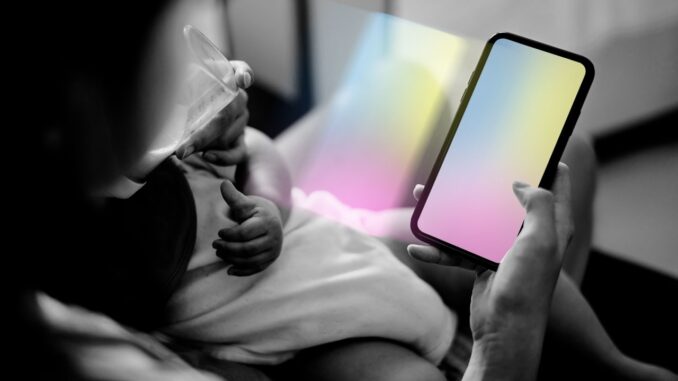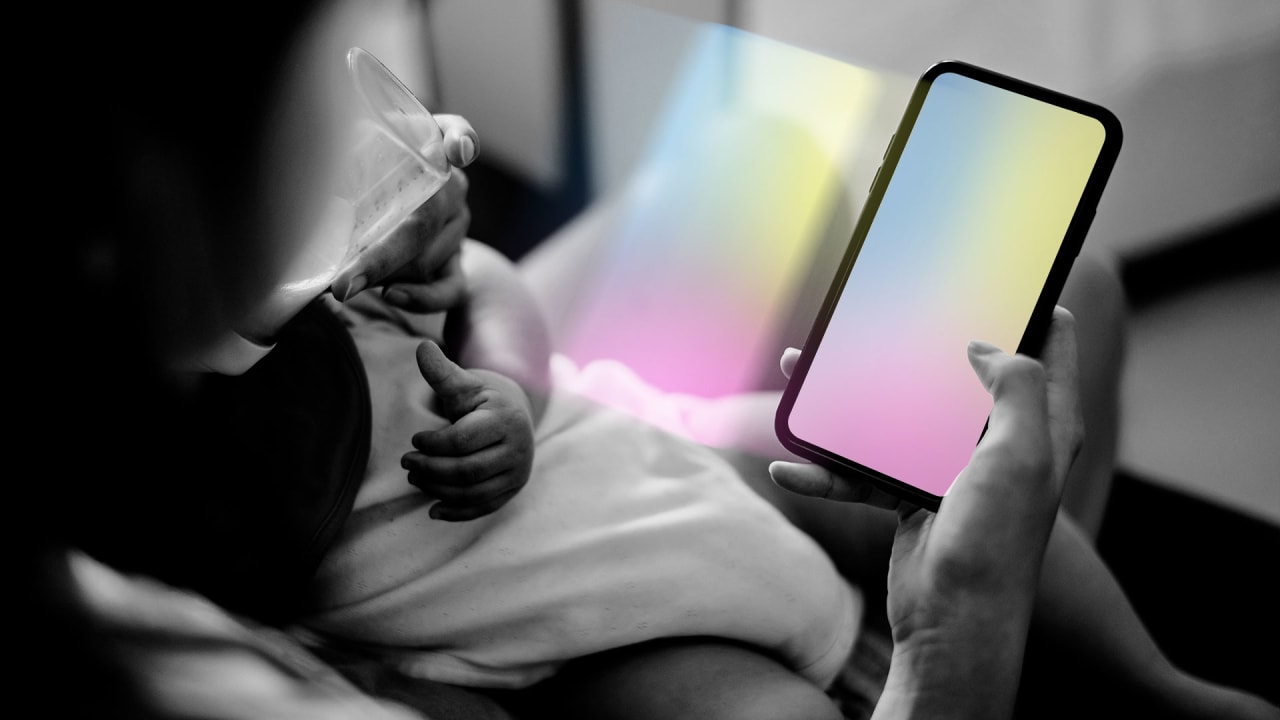
[ad_1]

Women gripped with the early trials of motherhood face isolation paired with increasingly monumental change. Many American mothers find themselves journeying in a silent struggle, according to Michelle Stephens, cofounder of Oath Care. The San Francisco-based startup officially launched its app at the end of October, after 10 months of being in beta. It’s raised $8 million from the likes of XYZ Ventures, General Catalyst, and OMERS Ventures, among others, since 2021.
Although there are generative AI tools for everything from creating text and images to music and gaming, Oath Care claims to be the first and only doctor-endorsed community platform for new mothers with a generative AI component built in. Dubbed ParentGPT, this is aimed at helping new mothers whose mental health is at risk from a variety of factors including unreasonable expectations coupled with inadequate resources.
A CDC Study states that about one in eight women who have recently given birth are experiencing symptoms of postpartum depression. It’s estimated that nearly half of all women grappling with mental health issues go undiagnosed by healthcare professionals, a situation exceedingly noticeable in the Black community.
I got to talk with Stephens one-on-one via Zoom, and sensed her eagerness through the screen. In her latest quest to help new mothers, she has become increasingly frustrated. As a pediatric clinician, Stephens witnessed the widely insufficient care recommendations of protocol for women and children in these early stages.
Stephens met her cofounder, Camilla Hermann, by chance at a mutual friend’s birthday party in the back of a Chinese restaurant. Hermann had worked on the ground during the Ebola epidemic in West Africa and partnered with Doctors Without Borders to build a tech platform for contact tracing. As such, she has seen firsthand the need for accessible healthcare and community.
The two developed the Oath Care app to group parents with peers and specific health experts tailored to their stage in the parenting journey. Central to Oath Care is ParentGPT, an AI tool powered by ChatGPT that responds to a variety of parental questions. A mother seeking advice on breastfeeding, for instance, might find insights from a lactation consultant, a sleep specialist, and a therapist, supplemented by personal experiences shared by community members. This creates a comprehensive support system, re-creating the “village” experience that modern parents often lack, according to Stephens.
To provide fact-based information, Stephens says Oath Care’s model exclusively pulls its evidence from peer review journals, which draws from only about “20 to 30 credible resources”; they do continuous integration with those resources with every post, although Stephens admits that the data is in fact biased.
“We need to do better at actually conducting these studies, so that we can have data that we can pull from that is inclusive of all populations,” she says, “So until that happens, the data that we pull from will be biased.” That said, the material’s sources are visible and members can also ask for a second opinion.
ParentGTP has specifically hired diverse specialists to encourage racial and ethnic accordance, in hopes of creating a deep trust between its members and the specialists who serve them.
The potential pool of members is large, especially among the underserved communities that Oath Care aims to help. According to the U.S. Census Bureau, out of about 10 million single parent families with children under the age of 18, almost 80 percent were headed by single mothers. A third lived in poverty. There are 16 million breadwinner moms in the U.S., and they support 28 million children. Of these 28 million children, eight million (or 29%) belong to households with Black breadwinner moms. Black children in the U.S. are more likely to grow up in a breadwinner mom household than not.
“We have at least tried to make a difference in building for both iOS and Android. Most of our low income folks actually have Android Google phones that are more available and have better coverage in the middle of the country,” Stephens explains. During their beta phase, they experienced a robust 260% growth over six months, with a user base comprising approximately 15% Android users versus 85% iPhone users from all over the country.
The service is not free, but costs $5 per month or an annual fee of $48 for access to specialists including doctors, nurses, doulas, and pelvic floor physiotherapists, among others.
“We’ve also thought about racial and ethnic alignment,” says Stephens, intentionally pairing patients with doctors who have similar ethnic backgrounds. The platform is open to all across the U.S. and has been since its inception. “And we’ve thought about health literacy,” Stephens underscores. “So the way that we deliver information, especially from our specialists, is at our reading level that is most accessible by folks.”
“By breaking down complex medical jargon through AI and meticulously training our facilitators and experts on what language to use, we’re paving the way for a future where informed health choices are a universal right, not a privilege,” says an optimistic Hermann.
“Now that we’re officially launched and gaining more visibility, we’re eager to extend our reach,” she says, “particularly to underserved communities across various states, leveraging this momentum to bridge the digital health divide.”
[ad_2]
Source link
Leave a Reply